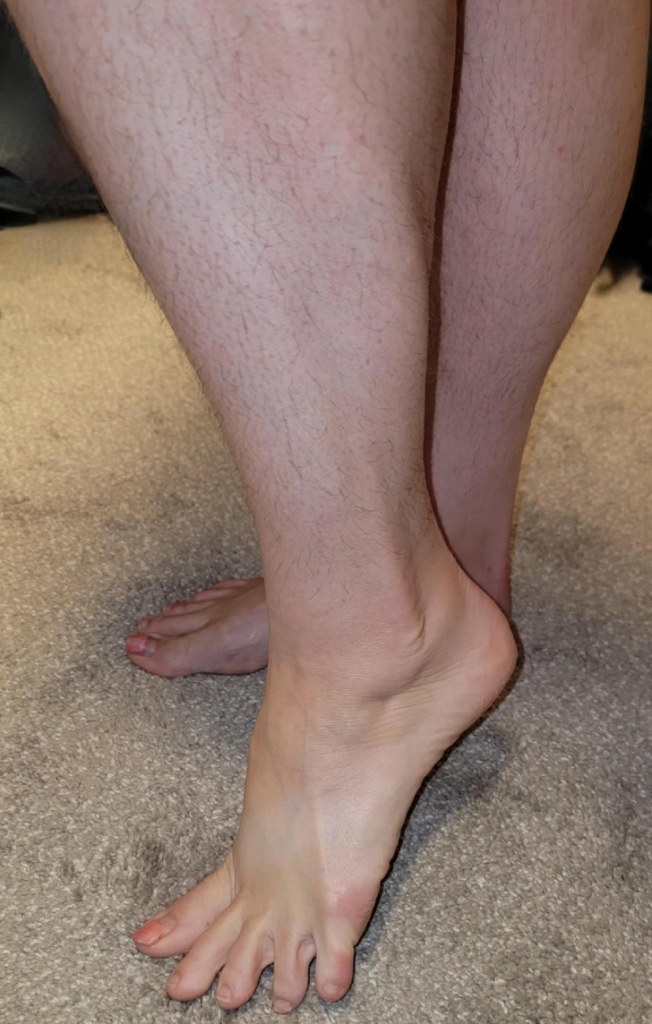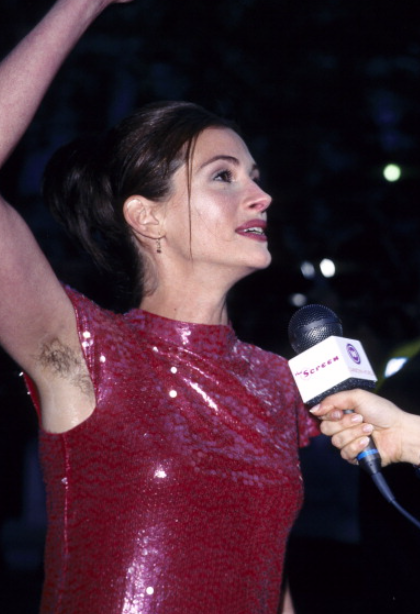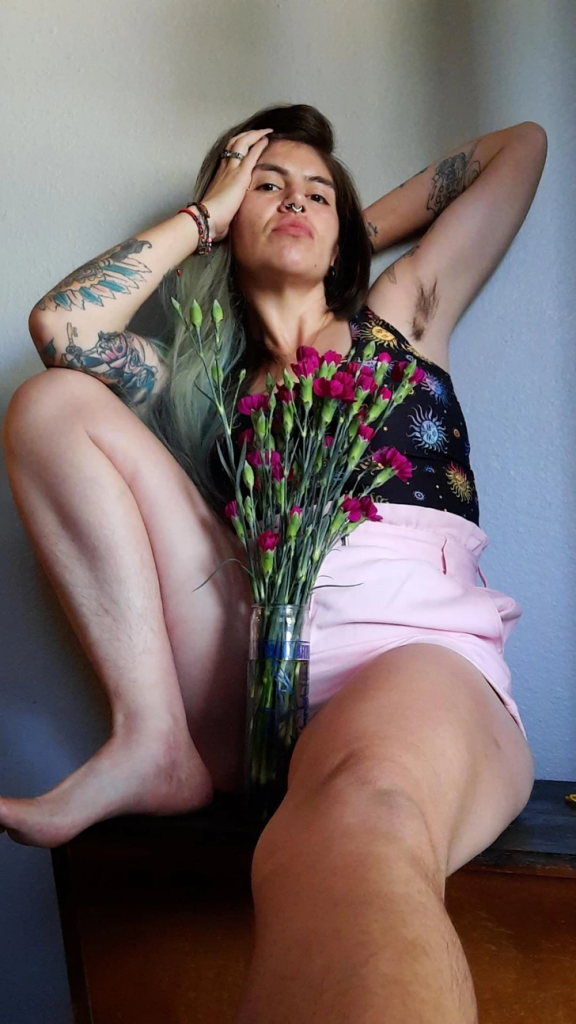In the labyrinth of societal norms and beauty standards, the narrative surrounding women’s body hair stands as a monumental testament to the evolution of empowerment and self-acceptance. For generations, the axiom that women must adhere to a regimen of hair removal to align with the epitome of femininity and attractiveness has been deeply ingrained in the cultural psyche. This doctrine has not only sculpted the aesthetic preferences of societies but also subtly reinforced gender-based stereotypes, casting a shadow over the natural human body and its inherent beauty.

However, as the dawn breaks on a new era of gender equality and body positivity, a seismic shift is underway. A growing number of women are now stepping into the light of their authentic selves, challenging the archaic conventions that have long dictated their appearance. This movement is not merely about the choice to embrace body hair but signifies a deeper, more profound journey towards self-love, autonomy, and the reclamation of one’s body from the clutches of societal expectations.

Among the vanguard of this transformative wave are women who, with every strand of unshaved hair, are weaving a narrative of resistance and liberation. They are not just defying the age-old norms but are also rewriting the script of what it means to be beautiful, feminine, and, above all, human. This act of defiance is an eloquent expression of their desire to define beauty on their own terms, to look in the mirror and see not a reflection marred by societal judgments, but a person who is whole, natural, and unapologetically themselves.

This journey, however, is not without its challenges. The decision to abandon the razor and embrace one’s natural body hair is a path strewn with societal backlash, judgment, and often, personal turmoil. Yet, it is within this crucible of adversity that the true essence of empowerment is forged. Women across the globe are finding solace and strength in shared experiences, using platforms like social media to amplify their voices, share their stories, and cultivate a community rooted in acceptance and support.

One poignant example of this collective journey towards self-acceptance is the story shared by a woman on Reddit, where she described the liberating feeling of embracing her body hair. She recounted small, everyday acts of defiance that gradually led her to feel more comfortable in her skin. This narrative resonates with many who find the act of shaving not as a personal preference but a burdensome chore imposed by societal norms.

Another inspiring tale comes from a woman who experienced a surge of joy when her unshaven legs received a compliment while out shopping. This simple act of kindness not only made her day but also underscored the shifting perceptions towards body hair. It served as a reminder that acceptance and beauty are not bound by the confines of societal expectations but are found in the eyes of those who can appreciate authenticity.

Sofia, another torchbearer of this movement, has chosen to live a life untouched by razors, embracing her body hair with pride. Her decision is a powerful statement against the beauty industry’s relentless push for hairlessness, challenging the narrative that smooth, hairless skin is the only path to femininity and allure.

The journey of Julia Michaels, the Grammy-winning singer-songwriter, adds a melodious note to this symphony of self-acceptance. Her decision to display her armpit hair, both on Instagram and on the grand stage of the Grammy Awards, reverberated across the world. It was a bold declaration that beauty standards could no longer dictate her self-worth or the authenticity of her expression. Her witty retort to body shamers, to “eat a bag of worms,” was a testament to her indomitable spirit, a clarion call to embrace one’s natural self without succumbing to the venom of criticism.

Lourdes Leon, daughter of the legendary Madonna, is carving her own path in the fashion world, all the while embracing her body hair. Her appearances on runways and red carpet events, flaunting her unshaven legs and underarms, are not just fashion statements but acts of rebellion against the rigid beauty standards of the fashion industry. Her confidence and poise in the face of scrutiny and debate are inspiring a new generation to question and redefine beauty norms.

The conversation around body hair and self-acceptance also draws inspiration from historical figures such as Frida Kahlo, who embraced her unibrow and facial hair as integral parts of her identity and artistic expression. This historical context adds depth to the current movement, reminding us that the quest for authenticity and self-expression transcends time and cultural boundaries.

In the digital age, social media platforms have emerged as powerful tools for advocacy and change, enabling individuals to share their stories and connect with others on similar journeys. The narratives of women embracing their body hair are not just personal anecdotes but collective experiences that resonate with many. They serve as beacons of hope and empowerment, encouraging others to embrace their natural selves and resist the pressure to conform to unrealistic beauty standards.

The movement towards body hair acceptance is intertwined with broader discussions on gender equality, body autonomy, and the dismantling of patriarchal structures that seek to control women’s bodies and choices. It challenges the notion that women’s bodies are objects to be groomed, modified, and presented in a manner that pleases others, rather than lived in and celebrated for their natural state. This shift represents a profound reclamation of agency, a collective assertion that women are the sovereigns of their own bodies and have the right to decide how they navigate their presence in the world.

Amidst this cultural reckoning, celebrities and influencers leveraging their platforms to champion body hair acceptance play a pivotal role. They not only challenge the polished, often unattainable beauty standards perpetuated by the media but also offer visibility and normalization of body hair. When public figures like Julia Roberts casually reveal their body hair on red carpets, or Amandla Stenberg shares photos highlighting their underarm hair, it catalyzes a broader conversation about beauty norms and inclusivity. These acts, intentional or otherwise, disrupt the status quo and encourage a more expansive definition of beauty that embraces diversity and authenticity.

Furthermore, the conversation extends beyond the mere act of not shaving. It delves into the cultural, historical, and socio-political dimensions of body hair, examining how different cultures and eras have perceived body hair and the implications of these attitudes on gender identity, sexuality, and body politics. This nuanced discussion reveals the complexity of the issue, highlighting that the choice to embrace body hair is not merely aesthetic but deeply intertwined with identity, autonomy, and resistance against oppressive norms.

The movement also foregrounds the importance of personal choice and the spectrum of body hair acceptance. While some women and non-binary individuals celebrate their body hair, others may choose to shave for personal comfort, aesthetic preference, or cultural practices. The key is the freedom to choose without coercion, judgment, or the weight of societal expectations. This distinction is crucial in fostering a genuinely inclusive and body-positive culture that honors diverse expressions of selfhood.

At the heart of this movement is a profound call for empathy, understanding, and solidarity. It invites society to reflect on the deeply ingrained biases and prejudices that inform our perceptions of beauty and gender. By embracing body hair, we not only challenge these outdated norms but also expand our capacity for acceptance, celebrating the myriad ways in which people choose to exist and express themselves.
Educational initiatives and community outreach play a significant role in advancing this conversation, offering resources, support, and spaces for dialogue. Workshops, talks, and online forums provide valuable opportunities for individuals to learn about the history and politics of body hair, share their experiences, and find community. These platforms can be instrumental in demystifying body hair, debunking myths, and dismantling the stigma that surrounds it.
The impact of this movement on future generations cannot be overstated. By challenging the status quo and advocating for body autonomy, we pave the way for a more inclusive and accepting world. A world where children grow up understanding the beauty of diversity, the value of individual choice, and the importance of respecting others’ decisions about their bodies. This paradigm shift has the potential to transform societal attitudes towards beauty, gender, and self-expression, creating a more compassionate and equitable world for all.
In conclusion, the movement toward body hair acceptance is much more than a trend; it is a powerful expression of liberation, autonomy, and resistance. It encapsulates the journey towards self-acceptance, the reclamation of personal choice, and the celebration of the natural human body in all its diversity. As this conversation continues to evolve and expand, it holds the promise of reshaping our cultural landscape, challenging us to envision a world where beauty is defined by authenticity, diversity, and the freedom to be unapologetically ourselves. In embracing body hair, we embrace a future marked by empathy, understanding, and a deeper appreciation for the beauty that lies in the unique stories of every individual.
